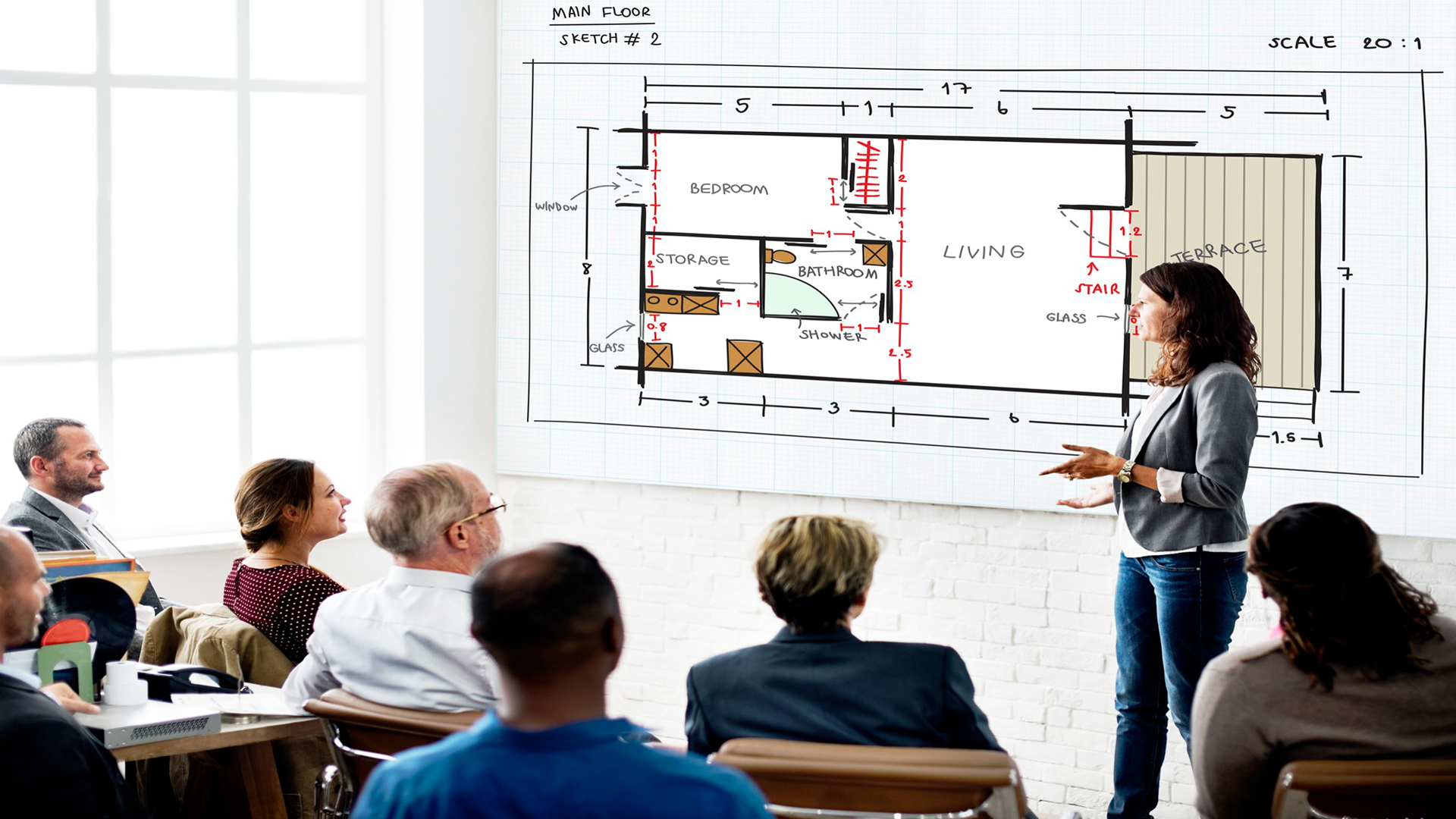
The Complete Agile Coaching Guide
Course overview
Within the organization, an agile coach is a vital enabler and change agent. They collaborate with teams at every level of the company, from development to executives. Agile coaches are experts who assist teams in pushing above their comfort zones and challenging oneself to greater levels of performance.
How can one become a coach that is agile?
An in-depth knowledge of the Agile manifesto, values, and plethora of frameworks, measurements, and tools is necessary for an Agile Coach. It would be necessary for the Agile Coach to be able to modify pre-existing frameworks based on the team and product. They could even need to start from scratch to build a new, suitable foundation.
The Coach works to improve team dynamics by guiding the team to concentrate on the aims and objectives of the organization through thoughtful interactions and long-term solutions. The basis for setting up the right conditions for an Agile transformation to succeed will be provided by this program. Coaches will have more authority on how to build and assist agile teams in order to produce better outcomes. Employees will be taught how to spearhead the behavioral and cultural shifts needed for organizations to reap the rewards of agile product delivery.
Introduction
In order to help coaches better support, lead, and train their teams to increase their agility, this course includes real-world case studies and interactive exercises. The training will assist them in developing the essential abilities of an Agile Coach, which include improving teaching, facilitation, mentoring, and team building skills as well as awareness of corporate goals and objectives.
For an agile coach, which qualification is the best?
The practical experience of industry professionals, whose knowledge greatly enhances the course and your learning process, is the driving force behind this Zoe training program. The needs of today’s practitioners and industry standards and requirements are both taken into account in the course content. This course has a strong emphasis on implementing coaching techniques learned in the program to build high-performing teams. This promotes genuine teamwork and constructive dispute resolution. Examples, activities, and case studies reinforce the theoretical knowledge to encourage participants’ practical application and expedite their skill-building.
We are The Training Bee, a global training and education firm providing services in many countries. We are specialized in capacity building and talent development solutions for individuals and organizations, with our highly customized programs and training sessions.
Upon passing this course and demonstrating their understanding of the core concepts of Agile Coach methodology, participants will receive the Agile Coach certification.
Learning Objectives
Upon completing Agile Coach Certification Course, participants will be able to:
- An outline of the coaching methods, Agile practices, and core competencies that an Agile Coach has to possess in order to be a change agent in an organization
- Clarity regarding the Agile Coach’s position, duties, and attitude
- The ability to mentor and impart knowledge in the appropriate manner and at the appropriate moment to enable teams to absorb it as fully as possible
- The necessary perspective, expertise, and abilities to engage in an Agile strategy that works for the organization and to guarantee that plans and projects are carried out successfully in accordance with the strategy
- The necessary assurance and expertise to assume a pivotal role in carrying out projects and tasks in the capacity of an Agile Coach
- The creation of a unique coaching, facilitating, mentoring, and teaching “style”
Our Unique Training Methodology
This interactive course comprises the following training methods:
- Journaling – This consists of setting a timer and letting your thoughts flow, unedited and unscripted recording events, ideas, and thoughts over a while, related to the topic.
- Social learning – Information and expertise exchanged amongst peers via computer-based technologies and interactive conversations including Blogging, instant messaging, and forums for debate in groups.
- Project-based learning
- Mind mapping and brainstorming – A session will be carried out between participants to uncover unique ideas, thoughts, and opinions having a quality discussion.
- Interactive sessions – The course will use informative lectures to introduce key concepts and theories related to the topic.
- Presentations – Participants will be presented with multimedia tools such as videos and graphics to enhance learning. These will be delivered engagingly and interactively.
Training Medium
This Agile Coach Certification Course training is designed in a way that it can be delivered face-to-face and virtually.
Course Duration
This training is versatile in its delivery. The training can be delivered as a full-fledged 40-hour training program or a 15- hours crash course covering 5 hours of content each day over 3 days
Pre-course Assessment
Before you enroll in this course all we wanted to know is your exact mindset and your way of thinking.
For that, we have designed this questionnaire attached below.
- Describe agile and its guiding concepts.
- Describe the principles of the Agile Manifesto.
- Describe the main responsibilities of the Scrum framework.
- Which are the primary Scrum rituals, and what role do they play in the outcome of a project?
- Describe what an Agile Coach does.
- Enumerate the principal duties of an Agile Coach inside an Agile team.
- Describe the coaching methods that are applied in an Agile setting.
- Talk about how crucial team dynamics are to Agile teams.
- How can an Agile Coach encourage team members to work together?
- Determine the pertinent KPIs and measurements in an Agile setting.
- Describe the role that these measures play in ongoing development
Course Modules
This Agile Coach Certification Course covers the following topics for understanding the essentials of the Agile Workplace:
Module 1 – Overview of Agile
- Waterfall versus Agile
- Agile values and principles
- Agile for the goods and services sectors
- Changing to meet evolving needs
- Agile and Scrum
Module 2 – Establishing an Agile Workplace
- Agile Mentality
- Servant Leadership
- Duties of Servant Leadership
- Team Membership
- Roles, duties, and dynamics of an agile team
Module 3 – Providing Services in a Flexible Setting
- Project Overview
- Reflections
- Preparing and refining backlogs
- Every Day Meetings
- Presentation / Evaluation
- Organizing for Repeats
Module 4 – Flexible Structures
- Overview of Scrum: roles, values, and artifacts
- Overview of Scrum
- Overview of Kanban
- Agile Lean
- Extreme programming
Module 5 – Assessing Agile
- Chart of Burndown
- Board KANBAN
- Feature Diagram
- Flexible PMO
Module 6 – The Importance of Organizational Factors in Project Agility
- Context of Organization
- Motivators for Management of Change
- Adaptability to Change
Module 7 – The Coach for Agile
- Agile coaching definition
- The mindset of Agile coaching
- Essential Skills and Characteristics of an Effective Coach
- The coach’s duties and competencies
- Developing the coach’s self-awareness and self-management
- Establishing limits for coaching
Module 8 – The Facilitator in the Coach
- What Agile team facilitation entails
- Arranging and leading meetings to promote cooperation
- Promoting complete involvement, teamwork, and engagement
- Facilitating Agile Practices with Skill
- Encouraging group decision-making
Module 9 – The Mentor Coach
- Coaching vs. mentoring
- Teaching and mentoring the duties of the Agile team
- Recognizing the cycle of personal change
- Recognizing and addressing personal resistance
Post-course Assessment
Participants need to complete an assessment post-course completion so our mentors will get to know their understanding of the course. A mentor will also have interrogative conversations with participants and provide valuable feedback.
- Write a brief summary of the main ideas of Agile coaching that you have studied in this course.
- Talk about certain coaching strategies that were taught in the training.
- In what way would you modify your coaching style to fit the requirements and level of experience of an Agile team?
- Consider the coaching techniques that were covered for contexts that are dynamic and complex.
- Give advice on how an Agile Coach can deal with uncertainty and complexity.
- Consider how crucial teamwork and facilitation are to Agile coaching.
- Explain the KPIs and Agile metrics that are taught in the course.
- How can team performance be gauged and changes directed using these metrics?
- Give your thoughts on the difficulties and possible fixes for scaling Agile.
- What is the best way for an Agile Coach to influence change and interact with others in an organization?
Lessons Learned
Agile is Not Just a Framework, it’s a Mindset: Recognize that Agile is a philosophy that prioritizes adaptability, teamwork, and ongoing improvement rather than just a collection of procedures. Acknowledge how crucial it is to encourage this way of thinking in teams.
Empowerment and facilitation make for effective coaching: Understand that empowerment and facilitation, not command, are necessary for effective coaching. Give teams the freedom to own their choices and procedures.
Adaptability in Complex Environments Is Critical: Recognize that in complicated and dynamic contexts, resilience and adaptation are essential. Agile coaches need to be ready to modify their tactics in response to the particular difficulties that arise in each situation.
Servant leadership is agile leadership: Accept the Agile leadership tenets, which have their roots in servant leadership. Recognize that an Agile coach’s job is to assist the team in reaching its objectives.
Continuous Improvement Should Be Driven by Metrics: Learn to use Agile metrics for continuous improvement rather than control. Metrics should be used to highlight accomplishments and pinpoint areas for improvement in order to promote a culture of ongoing learning.
Agile Scaling Needs a Comprehensive Approach: Recognize that expanding Agile requires a comprehensive strategy that takes organizational structure, culture, and cooperation into account in addition to simply putting frameworks into place. Alignment is necessary for scaling at all organizational levels.







